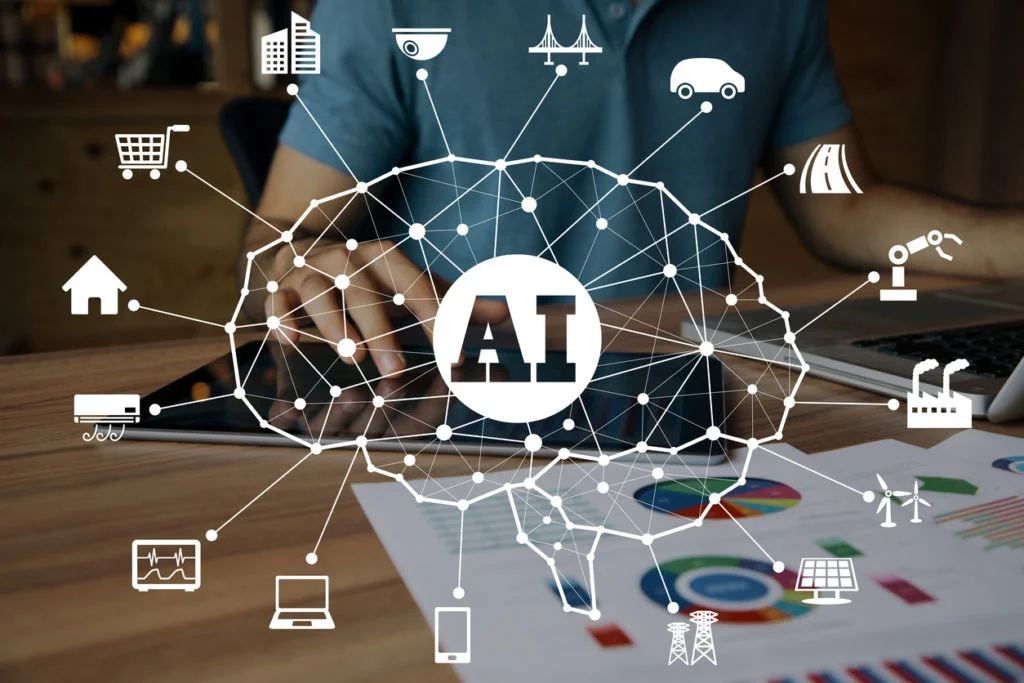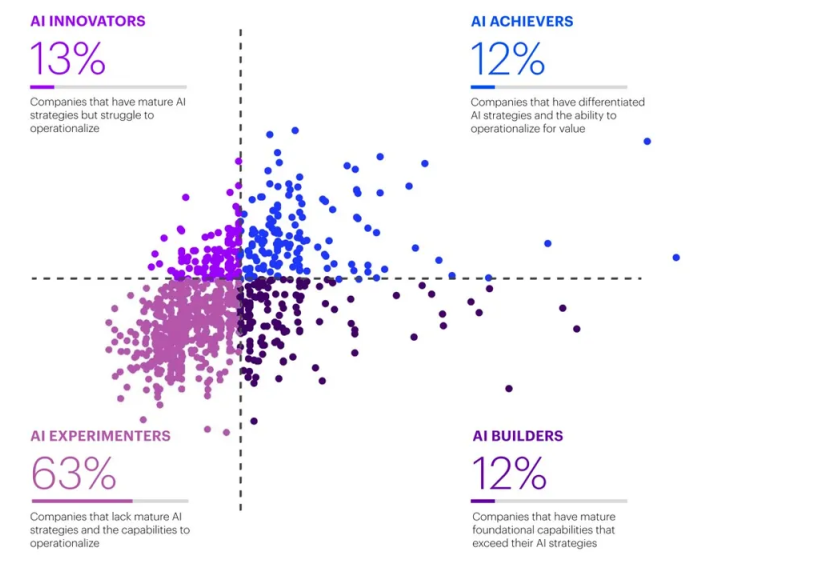Using AI has the potential to dramatically improve small business productivity. According to an Accenture report, “Why Artificial Intelligence is the Future of Growth,” by 2035, AI will increase business productivity by at least 35%.
How is this possible? First, AI isn’t a single technology. It is actually a wide variety of technologies that are designed to extend human capabilities and allow companies to make the most of their workforces.
Fortunately, AI isn’t just for large companies. In fact, AI is helping small businesses in a number of different ways. Here are 5 ways AI improves small business productivity.
1. AI-powered SaaS
Improving your workforce with AI isn’t only about utilizing new tools, it also means improving the software that you already use to manage your business. AI-powered SaaS can help business owners to leverage existing customer data in order to identify patterns and trends to make it easier to build and maintain customer relationships.
SaaS giants already allow their customers to collect vast amounts of data about their customers, permitting businesses to utilize AI to automate a range of core business functions. In fact, Salesforce just recently launched an AI platform called Einstein. It includes a series of AI tools that is designed to make AI more available to small businesses by allowing them to streamline work processes and become more predictive about customer interactions.
Other tech giants that offer cloud computing services, such as Amazon, Microsoft, and Google, are also creating opportunities for smaller companies to develop applications that utilize “AI as a service” tools.
2. AI and Advertising Personalization
When brands use AI to assist them in advertising, it can increase conversions while decreasing wasted advertising spend. By making use of existing company data, small businesses can use AI to better connect and communicate with their customers at the right times.
In fact, a major component of Facebook’s success is thanks to AI which helps the company generate relevant ads for its audience. Facebook has a wealth of data on its users that it uses to create personalized content based on online personas.
Facebook’s algorithms make use of browser history, check-ins, groups, likes, past searches, and mobile app usage in order to uncover patterns and trends about users’ desires, preferences and behaviors. This strategy has helped Facebook to achieve record revenues in recent year. As of the fourth quarter of 2017, Facebook’s revenue topped $12 billion.
3. Chatbots
Chatbots use natural language processing along with machine learning in order to provide accurate responses to customers’ requests. They are capable of understanding the context behind a user’s words in order to react accordingly. They can also remember previous responses in order to make the experience seem more personalized for customers.
In fact, Gartner estimates that by 2020, customers will manage 85% of their relationship with the enterprise without interacting with a human. Companies are already integrating chatbots into many different areas of their businesses. Not only are chatbots used to respond to support requests, they are also used in sales and even to complete common tasks, such as helping customers to make payments.
4. Accounting and Invoicing Automation
Accounting and invoicing are two major processes that disproportionately impact small businesses in comparison to larger businesses. As a result, AI is helping to eliminate some of the repetitive tasks, such as reconciling transactions and sending invoices.
Already major accounting software vendors, such as Intuit, Sage, and Xero are offering capabilities that include automated data entry and reconciliations. With AI, small businesses can reduce accounting errors and save on the costs of having these tasks performed manually.
5. Employee Engagement and Development
A recent Gallup report found that nearly 70 percent of employees do not feel engaged at work. For small businesses, the workforce is often the company’s biggest asset. Given the limited resources available to small businesses, it can be difficult for these companies to find the time and capital needed to effectively invest in their team members.
As a result, AI solutions are filling the gap by giving employees the opportunity to share feedback in cases where their voices might have otherwise gone unheard. To increase the effectiveness of the HR department, companies are now also utilizing chatbot solutions, such as Tangowork, to provide employees with greater access to HR information. Employees are also using chatbots via Facebook Messenger, Slack, or WeChat to obtain answers to questions.
Chatbots can also deliver micro-lessons to employees, providing them with relevant information at specific intervals in response to various triggers. AI can be used to predict training outcomes and provide efficient solutions for industries with dynamic learning requirements. Integrating AI with elearning tools is especially effective for smalls businesses where elearning content needs to be updated on a continuous basis. Overall, AI solutions can dramatically improve employee confidence and retention.
Assessing AI’s Impact By Industry
Given the vast number of ways that a business can implement AI, there is no single impact that AI can have on every company. In fact, the results that AI may have will actually depend on your industry, as well as, your implementation strategy.
For example, while finance companies can take advantage of AI technologies to relieve their workers of repetitive tasks, such as market research companies in other industries can benefit more from AI-enabled systems that are capable of analyzing vast amounts of data, such as those used to diagnose health concerns in patients.
In manufacturing, AI-powered machines will be used to help to eliminate downtime and errors. Overall, it is expected that small businesses in certain industries will have the potential to reap the benefits of AI more than others.
Transitioning to AI for Small Business
Whether your goal is to augment your workforce or drive innovation, you will need to carefully assess the opportunity that AI presents for your company and your industry. To learn more about how Achievion can help your company make the transition to AI-powered business processes, contact us today to schedule a consultation.









